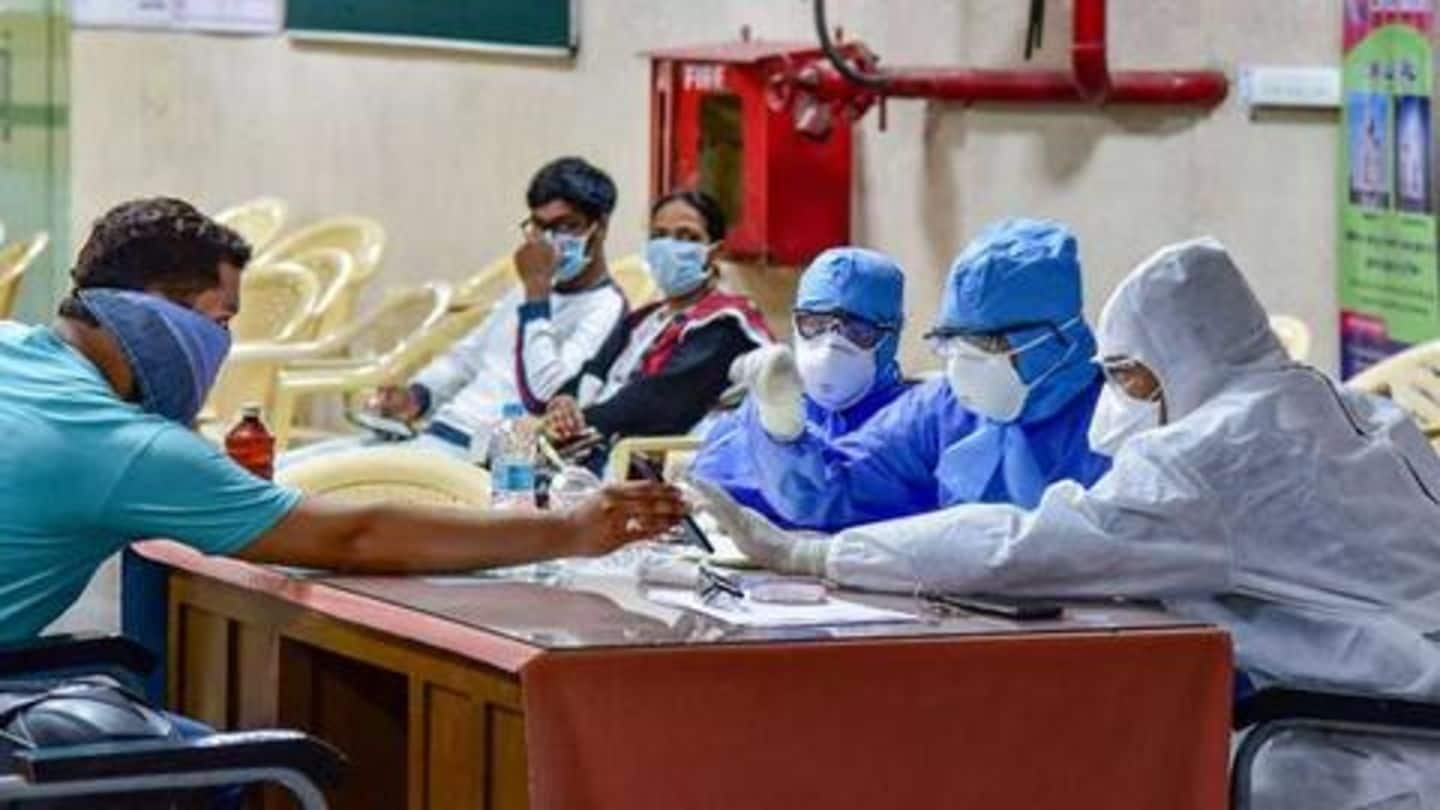
Coronavirus: India's death toll nears 100-mark; over 3,000 cases reported
What's the story
In the last 24 hours, the number of cases of the coronavirus disease (COVID-19) jumped by 525, the Ministry of Health confirmed. This is the largest single-day spike in coronavirus cases. With this, the total number of COVID-19 cases surged past 3,000 and 30% of them are linked to the Tablighi Jamaat event. India has now reported at least 99 deaths.
Confirmed cases
Health Ministry confirms 3,072 cases, 75 deaths
According to the latest update from the Health Ministry, by 6 pm on Saturday, India had reported 3,072 COVID-19 cases. These include 75 deaths and 2,784 active cases, along with 212 cured/discharged patients, and one patient who has migrated out of India. The Indian Council of Medical Research (ICMR) said it tested 11,182 samples for coronavirus on Saturday and 324 were positive.
Information
79,950 samples tested for COVID-19 in India: ICMR
The ICMR also said that till Saturday, 79,950 samples had been tested for the coronavirus. However, the ICMR's testing update did not mention how many individuals had been tested. Notably, India has faced backlash for its low testing rate.
Deaths
India's total death toll is at least 99
Although the Health Ministry reported 75 deaths, a lag has been observed between the independent tally of several states and the national tally. 22 additional deaths have been reported: Maharashtra (27), Madhya Pradesh (11), Telangana (11), West Bengal (7), Karnataka (4), Rajasthan (4), Tamil Nadu (3). Separately, a woman from Himachal Pradesh's Baddi and a 67-year-old man from Haryana's Ambala died at PGIMER, Chandigarh.
Information
'Mortality rate among positive cases less than one in 30'
Union Health Ministry Joint Secretary Lav Agarwal said Saturday one in 25 people tested for COVID-19 was positive. Less than one in 30 positive cases proved fatal. 9% COVID-19 patients are aged 0-20, 42% aged 21-40, 33% aged 41-60, and 17% aged 60 and above.
Maharashtra
With 637 cases and 27 deaths, Maharashtra remains worst-hit
Maharashtra remains the worst-hit state in the coronavirus outbreak. The state had reported 26 confirmed COVID-19 deaths till Friday. On Saturday, a 45-year-old man, who died on April 2, was tested positive for the disease, Amravati District Collector Shelesh Nawal told ANI. Maharashtra also reports the most infections: 635 COVID-19 cases. Five cases, including one death, have been reported from Dharavi slums.
Delhi
Delhi's cases rose to 445; 40 due to local transmission
Delhi on Saturday reported a total of 445 COVID-19 cases, including six deaths. Out of these, 40 infections were because of local transmission, Chief Minister Arvind Kejriwal said. Citing the local transmission cases in Delhi, Kejriwal said, "[The outbreak] is under control." Delhi's Health Department said that out of 445 cases, 301 are from the Tablighi Jamaat religious congregation in Nizamuddin in mid-March.
Tablighi Jamaat
Tablighi Jamaat event linked to 30% COVID-19 cases
Tablighi Jamaat is an Islamic missionary group that held a religious congregation in Delhi's Nizamuddin in mid-March. This event has been linked to 1,023 COVID-19 cases across 17 states in India, Lav Agarwal said. This means around 30% of all cases are linked to the Jamaat event. The Home Ministry said 22,000 Jamaat workers and their contacts are now under quarantine.
Badly-hit states
Tamil Nadu reports second-highest number of COVID-19 cases
Kerala has reported 295 positive cases and two deaths. Tamil Nadu has reported 485 COVID-19 cases and three deaths. Telangana has reported 272 COVID-19 cases and 11 deaths. Reportedly, a 55-year-old woman, who died on April 1, tested positive for COVID-19 earlier on Saturday. However, the state bulletin (updated at 9 pm on Saturday) has kept its death toll unchanged since Friday at 11.
Highlights
Coronavirus-positive woman delivers 'healthy' baby
A coronavirus-positive woman delivered a baby at AIIMS-Delhi. The doctors say the baby is so far healthy. The woman is the wife of a resident doctor at AIIMS' Physiology Department and had just tested positive this Thursday. Indian Council of Medical Research (ICMR) has issued an advisory to start rapid antibody-based blood tests in cluster zones, migration gatherings, and evacuee centers.